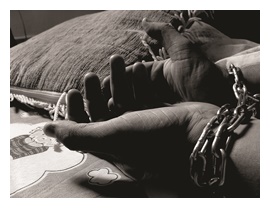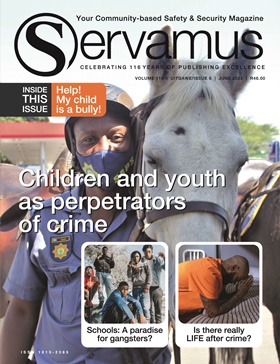By Kotie Geldenhuys
The kidnapping of the four Moti brothers on 20 October 2021 from Polokwane in Limpopo, while they were on their way to school, by a gun-wielding gang sounded like something from a movie. Especially since the kidnappers had demanded a ransom of R50 million. Three weeks later the R50 million ransom was allegedly paid and the boys were released. Soon after the release of the four brothers, the Moti family relocated to Dubai. Details of the reason behind the kidnapping were not revealed, but the police believe that a Moti family member was involved in an illicit money transfer deal that had gone wrong. The aggrieved party then apparently responded by kidnapping the boys. The family's failure to cooperate with the investigation, raised suspicions that there was more to this kidnapping than initially met the eye (Mashego, 2022). While this case might seem like something from a movie, incidents like these have become more common in South Africa.
In terms of South African common law, "kidnapping" is defined as "the unlawful and intentional deprivation of a person's freedom of movement or, if such a person is a child, the unlawful intentional deprivation of a parent of control over the child". "Abduction" on the other hand "is the unlawful and intentional removal of an unmarried minor from the control of his or her parents or guardian in order to enable someone to marry him or her or to have sexual intercourse with him or her" (Lancaster, 2020). For the purpose of this article, we will focus on kidnapping for ransom and extortion, but first we will discuss kidnapping in general.
Kidnapping on the increase
Over the past couple of years, the number of kidnappings in South Africa has been increasing sharply. When comparing the SAPS's crime statistics for the period October to December 2022 with the same period the previous year, we should be concerned about the increase from 2605 to 4124 kidnappings - an increase of almost 60%. The majority of these kidnappings occurred in Gauteng, followed by KwaZulu-Natal (SAPS, 2023).
According to the SAPS, some of the reasons behind kidnapping include sexual offences, domestic disputes, mob justice, revenge, ransom and extortion. However, the majority of kidnappings are due to robberies and hijackings (Lancaster, 2022). It is suggested that these victims are taken along to ensure that tracking devices cannot be activated and/or to force victims to provide robbers with the PINs from their bank cards. These victims are often held for a couple of hours enabling robbers to withdraw cash from an ATM to "indirectly" pay for their own release. In the case studies of several so-called blue-light hijackings victims, which we shared in Servamus: February 2023, they explained how money was withdrawn from their bank accounts while they were kept hostage after they were hijacked. In 128 of the 4124 cases that were reported to the police for the period October to December 2022, ransom was demanded, while 23 involved extortion. There was an increase of 42 cases in kidnapping for ransom cases compared to the same period the previous year. Of these, 12 were human trafficking-related (SAPS, 2023).
Kidnapping for ransom
According to the Strategic Organised Crime Risk Assessment Report on South Africa, released by the Global Initiative against Transnational Organised Crime (GI-TOC), published in September 2022, kidnapping for ransom and extortion is a subcategory of kidnapping. The purpose behind kidnapping for ransom and extortion involves depriving someone of their freedom to gain financial or other benefits. The victim is held against his or her will until the demanded ransom is paid or the required action is performed (GI-TOC, 2022). In South Africa, kidnapping for ransom and extortion is fast becoming a lucrative business and syndicates are often involved. Authorities and intelligence sources estimate that kidnappers have secured more than R750 million in ransom payments since 2017. This money is laundered by purchasing homes in lifestyle estates, luxury vehicles and jewellery as well as to pay gangsters and corrupt police officials to commit more kidnappings and to hamper investigations (Hosken, Hyman and Makhetha, 2022). However, according to the SAPS's statistics, kidnapping for ransom accounts for only 5% of all kidnappings (Lancaster, 2020) but it is likely that this is one of the most under-reported categories of kidnapping simply because it holds a threat to the victim's well-being as well as that of his or her family, even after release (GI-TOC, 2022).
******************************
[This is only an extract of an article that is published in Servamus: April 2023. The rest of the article asks the question whether one should pay or not pay the ransom; the payment methods; the different levels of kidnapping for ransom; the link to human trafficking, smuggling and terrorism; and the harm done to the victims. If you are interested in reading more, send an e-mail to: This email address is being protected from spambots. You need JavaScript enabled to view it. or a WhatsApp to: 078 712 1745 to find out what you have to do. Ed.]








